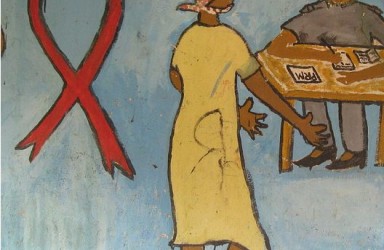Accounting for the Resilience of the Taliban
Despite a considerable advantage in terms of manpower, weaponry, funding and logistics, the international military presence in Afghanistan has been unable to defeat the Taliban insurgency. In fact, it could perhaps be argued that the presence of foreign troops on Afghan soil has been the instrumental factor in allowing the Taliban to not only survive, but to expand and prosper.
The Challenge of AIDS in African Society
African societies are already suffering from poverty, inequality and weak social cohesion. Since its emergence, HIV/AIDS has added a multifaceted layer of new dimensions to the former. It impacts on the economy, education and the food security of the household, creating a paradigm in which poverty is a challenge in stopping the HIV/AIDS epidemic and HIV/AIDS is a challenge in stopping poverty.
Brzezinski on a U.S. Berezina: anticipating a new, New World Order
In four books from 1997 to 2008 Zbigniew Brzezinski outlined a comprehensive American foreign posture around the geopolitical grail of Central Asia. Since 1945 the United States has been largely defined as the first non-Eurasian thalassocracy to prevail in the Great Game, yet for how long?
Ending the Odyssey: A Necessary if Imperfect Proposal for Restoring the Peace in Libya
While the lessons of the Libyan crisis for international relations are many, the most important lesson is the need to change the way that humanitarian interventions are conducted, as the violence experienced by civilians since the foreign intervention has increased substantially.
Issues in the association of women with peace activism
Women’s roles in working towards peace have become increasingly celebrated. The core issue with the association of women with peace activism is that it raises, and reinforces, gendered norms, through the assumptions of what it means to be a woman. In academic literature, these assumptions of Maternalism and Essentialism deny women agency.
Has the war on terror been an appropriate response to terrorism?
Terrorism has existed for centuries as a way of creating disruption and fear. Yet, to declare a war against it has created numerous questions as to how to fight this multifaceted idea. Individual groups do indeed hold ideological stances, just as legitimate political parties do, but to brand all terrorism and terrorists as the same would be incorrect.
Absolute and Relative Gains in the Real World
The real world is too complicated to be explained by absolute or relative gains alone. Both theories treat states as rational and unitary actors. Due to the diversity of interests, it is not easy to define a unitary national interest in some issues. Consequently, gains per se sometimes cannot be clearly stated.
Yin or Yang? China and the Muslim world
In its autonomous region of Xinjiang China will decide upon its lasting and largely irreversible geopolitical trademark in entering the Global Balkans. Though it is narrow, the window of opportunity exists for China to take a credible leadership for regional peace and secure stable confidence.
Decision Makers, Personal Belief, and Foreign Policy
Beliefs do matter in foreign policy as decision-making rarely conforms to demanding rational choice models. The power of ideas in international relations highlights particular human weaknesses, which might help understand a number of seemingly inexplicable decisions. Beliefs, however, are only one part of a wider framework.
Internationalized Sovereignty: Erosion or Extension?
The Kosovo intervention was the first in history to be justified solely on the basis of human rights breaches by a sovereign state within its territory, which were judged to present threat to international order. The bottom line remains that Belgrade’s sovereignty over Kosovo was first breached and then completely removed by the international community.













